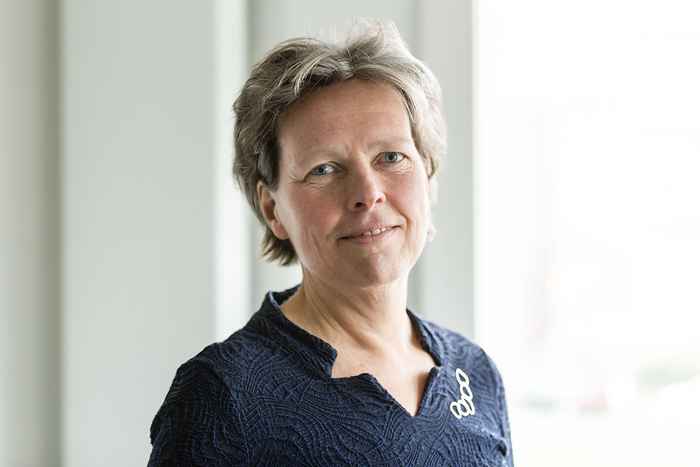Blog: Independent lawyers in times of Putin dictatorship and war (Diana de Wolff)
3 March 2022

'Foreign agents'
Petersburg lawyer Ivan Pavlov has spent many years campaigning for an organization that strived for better access to government information, Team 29. He stood up for independent journalists and historians, people who drew attention to abuses and then were prosecuted on unfounded charges of extremism, treason or espionage. Pavlov himself was arrested in April 2021 for illegally disclosing information about a case against a journalist. After Putin's justice minister initiated proceedings to have Pavlov removed from his practice as a lawyer, Pavlov decided to leave Russia in September for fear of prosecution. Shortly afterwards, he was registered as a "foreign agent," effectively silencing him in Russia. People who are regarded as foreign agents may no longer appear in the (social) media without stating that predicate, on pain of fines. In addition, they must provide the government with full insight into the payments they receive. In the case of lawyers, this includes the name and surname of the clients, which seriously affects the right of nondisclosure.
Prepare suitcase
The Pavlov case is unfortunately no exception. His colleague Valeria Vetoshkina has also been branded a 'foreign agent'. She defended people who demonstrated early last year for the release of opposition leader Alexei Navalny. She had collaborated with the now banned human rights organization Memorial. She had also received travel expenses from abroad to attend a human rights seminar. In Russia, for example, lawyers who try to get to the bottom of things or work with human rights organizations are dealt with. Critical lawyers are under heavy pressure. A lawyer who presents himself with politically sensitive cases should not be afraid. And maybe just to be on the safe side, have a suitcase ready.
The Netherlands as a forum for Russia's mega business
Now that Putin is trying to bring Ukraine to its knees with brutal war violence, attention is turning to the Dutch lawyers who look after his cases. Russia is – or was – a major customer here, certainly because arbitration or settlement in the Netherlands is often chosen in disputes with Russia. Matters with great interests too. Dutch lawyers, for example, represent Russia in proceedings against Ukrainian investors who suffered billions of dollars in damage as a result of the annexation of Crimea in 2014. They sought to get the Allard Pierson Museum to send the "Treasures of Crimea" to the illegally occupied Crimea by Russia. However, the protracted Yukos case takes the cake. In that case, proceedings were brought before the Arbitration Court in The Hague until 2014 about a claim of 50 billion dollars from the shareholders of that company. The Tribunal ruled that Russia had pursued the bankruptcy of Yukos, which took place in 2003, with tax and recovery measures, and that Russia did so with a view to making Mikhail Khodorkovsky, then the CEO and co-shareholder of Yukos, a political opponent of Putin switch and take over Yukos' assets. The claim was upheld. Since then, Russia has been trying to overturn that ruling in civil court, arguing that – very briefly – the shareholders allegedly cheated in the proceedings before the Arbitral Court. At the court, Russia was proved right, and the Court of The Hague wrong. Despite a different opinion from the Advocate General, the Supreme Court ruled on 5 November (ECLI:NL:HR:2021:1645) that the Amsterdam Court of Appeals must further investigate the insinuation of fraud. So Russia can keep the $50 billion in its pocket for the time being. Or in the war chest.
The 'elite' of the legal profession
The proceedings have not only generated revenue for the Russia defenders. According to their proud website (consulted on March 2, 2022) they have also been awarded the 'Global Dispute of the Year Award in Investment Arbitration' for their performance in the Yukos case and, partly due to their performance for Russia, they are, according to the Global Arbitration Review, one of the 'World's Elite Firms for International Arbitration'. And two weeks ago, the Council of Ministers appointed the cassation lawyer who won Russia's victory on November 5, 2021, as a judge in the Supreme Court. We can consider ourselves fortunate that in the Netherlands lawyers are not criminalized who are paid by foreign parties and that they are not identified with their clients. In Russia it does, with all the consequences for courageous and critical lawyers. The dictator in charge there will therefore probably think that the success and prestige of his Dutch defenders radiates on him. Imagine: your internationally acclaimed lawyer wins your case at the Supreme Court and is appointed to the same Supreme Court a few months later. Then it must really be okay with what you have done in all your unscrupulousness.
The Dutch lawyers have meanwhile terminated the relationship with Russia, it was announced on 3 March.
Prof. dr. D.J.B. (Diana) de Wolff
Prof. dr. Diana de Wolff
